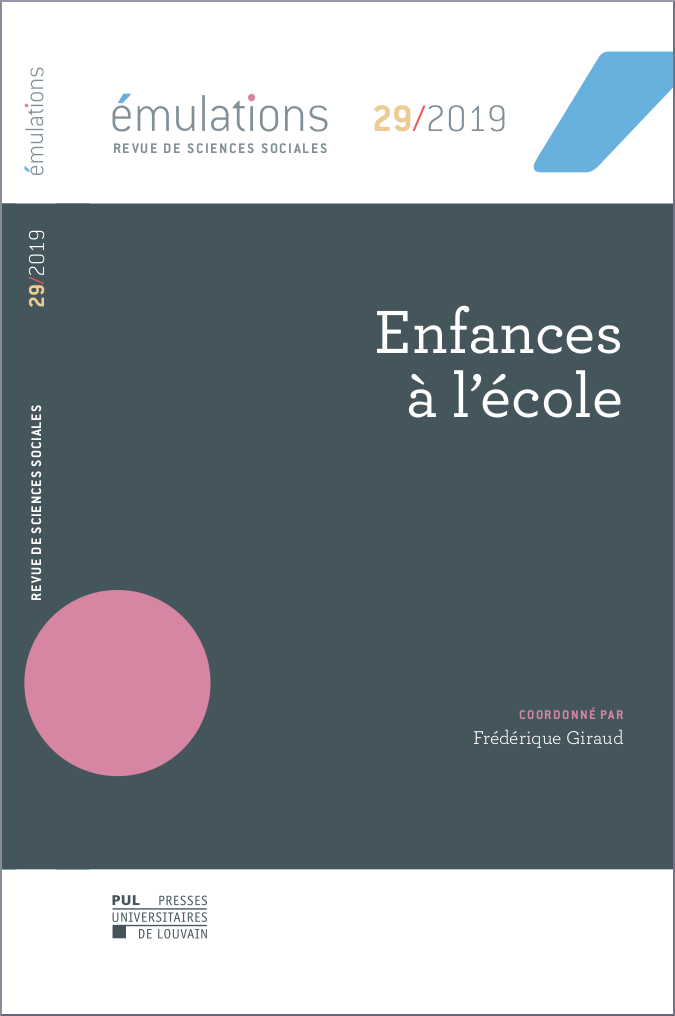À qui profitent les sciences ?
Éducation scientifique et reproduction des inégalités en milieux populaires
DOI:
https://doi.org/10.14428/emulations.029.10Keywords:
education, childhood, gender, science, inequalities, working-classAbstract
This article examines the ways in which educational institutions, due to the variety of expectations, representations and practices of educators and students, produce differentiated relationships to science that disqualify a certain type of students. The data used in this study comes from a four-year longitudinal qualitative survey (4th-6th grade) and was collected through observation of science workshops and interviews with children, parents, teachers and science mediators. It shows how–in a segregated educational context–treating children as others and holding them accountable for their situation produces differentiating treatments that reproduce social inequalities in science. More specifically, this paper addresses the case of working-class boys that science education, being laden with academic misunderstandings, deter from science and limits to technical and manuel work.
Downloads
Published
How to Cite
Issue
Section
License
Copyright (c) 2019 Emulations - Revue de sciences sociales

This work is licensed under a Creative Commons Attribution 4.0 International License.




.png)





